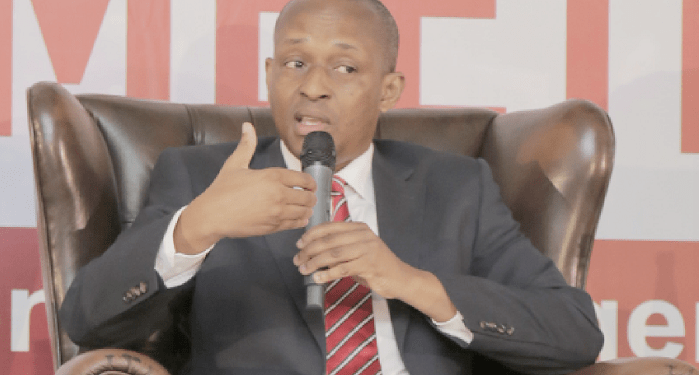2022 Budget: Domestic borrowing will starve local businesses – PwC warns
Auditing firm PwC is warning that government’s decision to mainly finance its 2022 fiscal deficit from domestic borrowing could prevent local businesses from accessing funds to expand their operations.
In the 2022 budget presented to parliament by the finance minister, government is seeking to fund its projected fiscal deficit of 7.4 percent of GDP through domestic borrowing.
According to PwC, even though the move is aimed at putting the exchange rate in check, the aggregate effect on local businesses could be dire and counterproductive.
“The downside of crowding out the private sector from the credit market may ultimately affect government’s plans to boost entrepreneurship,” PwC cautioned in a post-2022 budget analysis forum held virtually.
In the view of PwC, not only will this crowd out the private sector and starve businesses of funds, but also cause the debt stock to rise.
“This will possibly affect Ghana’s credit rating by international credit rating institutions if the growth in GDP is lower than the growth in debt stock,” it said.
Already, Moody’s Investor Services and Standard and Poor Global Ratings have affirmed Ghana’s sovereign rating at B3 and B- respectively.
This, PwC says, should guide government to commit to enforcing policy interventions outlined in the budget in order to achieve the targetted GDP growth of 5.5 percent in 2022.
Already, the Monetary Policy Committee (MPC) of the Bank of Ghana at its 102nd meeting has expressed discontent over the declining growth in lending to the private sector from banks – which is mainly due to their preference of lending to government; saying this will affect plans to recover the economy if it becomes a trend.
Even though the central bank admits heightened credit risk associated with the pandemic could be a factor influencing banks to tread cautiously, it further notes that banks are taking advantage of the excessive borrowing by government from the domestic market to crowd out the private sector; a development the committee fears will have negative consequences on the economy, especially at time businesses need a financial injection to boost their operations.
“This slow growth in lending reflects increased credit risks on account of uncertainties in the business environment due to the impact of Covid-19 pandemic on the real sector, coupled with very high yields offered on government securities due to increased government borrowing.
“This crowding-out effect continues to keep the credit to GDP gap below the long-term trend, and is likely to delay recovery of the economy and discourage banks from strengthening their credit underwriting processes to manage credit risks from lending to underserved sectors of the economy,” the MPC report said.
Government’s debt sustainability target for 2021
Government says it expects to achieve a fiscal deficit of 9.4 percent of GDP in December 2021 – a reduction from 11.7 percent in December 2020, excluding the financial sector and energy sector clean-up costs.
This will however include the budget deficit for December 2021, which is projected to be 12.1 percent of GDP.
Finance Minister Ken Ofori Atta has already stated that the 2022 fiscal policy is geared at strengthening the credibility of government’s fiscal consolidation programme.
In the 2022 budget, government intends to reduce the Budget deficit to 7.4% of GDP to be within the 5% Fiscal Responsibility Act, 2018 (Act 982) benchmark in the medium-term.



